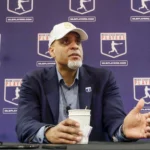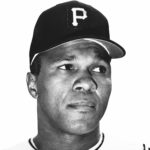Steve Rogers was a great pitcher. I am the first to acknowledge that.
He is a smart guy too. He earned a degree in petroleum engineering from Tulsa University.
He is not a great labor advocate, however.
As the National League Players’ Representative in 1980, Rogers and Sal Bando, the American League Players’ Representative, allowed the union representing today’s players, the Major League Baseball Players Association (MLBPA), to throw under the bus all those retired men who played prior to 1980 who had more than 43 game days of service but less than four years of credit. Prior to a vesting rules change in 1980, four years was what was required to be eligible for a Major League Baseball (MLB) pension.
Ever since 1980, all you’ve needed to be eligible for MLB is 43 game days of service. In fact, if you’re called up by your favorite team in mid-August this year, and stay on its roster till October 1, you know what you’re guaranteed when you turn 62-years-old? An annual benefit of nearly $4,000 per year.
But if you played less than four years before 1980, you’re only receiving $625 for every 43 game days of service you have on an active MLB roster.
Mr. Rogers, who is the players’ pension liaison to the union representing current ballplayers, earns an annual salary of approximately $250,000, once benefits have been factored into the equation, in addition to the MLB pension he earned after his playing days were over.
Despite 158 career victories, Mr. Rogers never got a vote for the Hall of Fame. Not even from the hometown Montreal Expo writers, he played in front of all those years.
Author Jonah Keri teases the reason in his book on the team, Up, Up and Away:
Rogers was both a great pitcher and one of the most brutally frank players the Expos ever had. That pull-no-punches approach lives on decades later, with Rogers now working for the Major League Baseball Players’ Association.
Did Rogers ever think about being nicer to the writers all those years? ‘Cause kindness goes a long way.
Rogers seems to be employing that same bulldog mentality that Keri wrote about for the union representing current players by crapping on all those pre-1980 retirees w/o MLB pensions. Just like the Montreal writers crapped on him.
Does Rogers ever think that perhaps his former teammates, those men he played with, are just looking for him to do right by them?
There’s Don DeMola, who used to work as a furrier but who now sells mattresses for a living. DeMola, of Smithtown, New York, logged 155 and one-third innings in 1974 and 1975. Or William Cecil Glen Atkinson, a Chatham, Ontario, Canada resident who serves as pitching coach for the Western County Wolverines. During his playing career with the Expos, from 1976 through 1979, Mr. Atkinson appeared in 98 games. In 147 and one–third innings, he recorded 11-lifetime victories and 11 saves.
And what about Jim Cox, who turned 71 this past May? Cox, who received a Bachelor of Science in microbiology from the University of Iowa, played his entire career with the Expos, from 1973 through 1976. A second baseman, Mr. Cox came up to bat 307 times and collected 66 hits, including 11 doubles, two triples, and three home runs.
I’m sure he’d like to provide for his wife, Candace Jean Cox, whenever he goes to that great Jarry Park in the sky.
With Thanksgiving coming up, Steve Rogers can still be a good teammate. I know 609 men who’d be grateful if he did the right thing.
A freelance magazine writer, Douglas J. Gladstone is also the author of two books, including “A Bitter Cup of Coffee; How MLB & The Players’ Association Threw 874 Retirees a Curve.”
Author Profile
Latest entries
 MLBDecember 14, 2022A Tale of Two Wyomingites
MLBDecember 14, 2022A Tale of Two Wyomingites MLBJuly 2, 2022Asking for Accountability From a POC Isn’t Bigotry
MLBJuly 2, 2022Asking for Accountability From a POC Isn’t Bigotry MLBFebruary 5, 2022A Valentine’s Appeal to Tony Clark, Executive Director, Major League Baseball Players’ Association
MLBFebruary 5, 2022A Valentine’s Appeal to Tony Clark, Executive Director, Major League Baseball Players’ Association MLBJanuary 19, 2022MLB: Pre-1980 Players Without a Pension List Now Stands at 525
MLBJanuary 19, 2022MLB: Pre-1980 Players Without a Pension List Now Stands at 525

